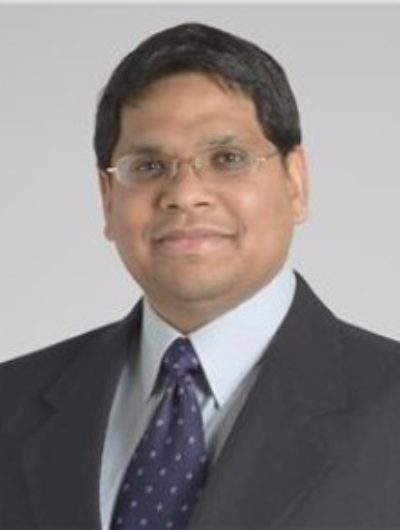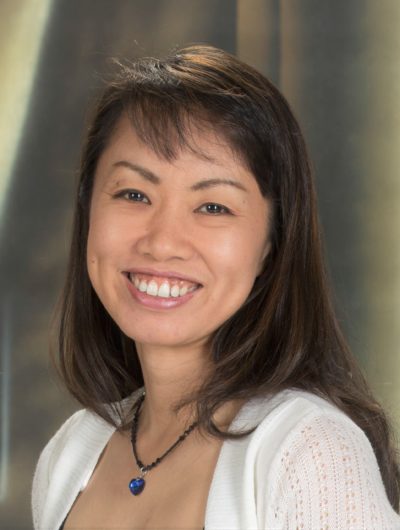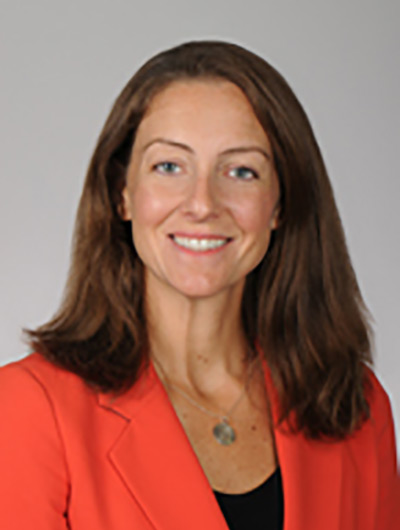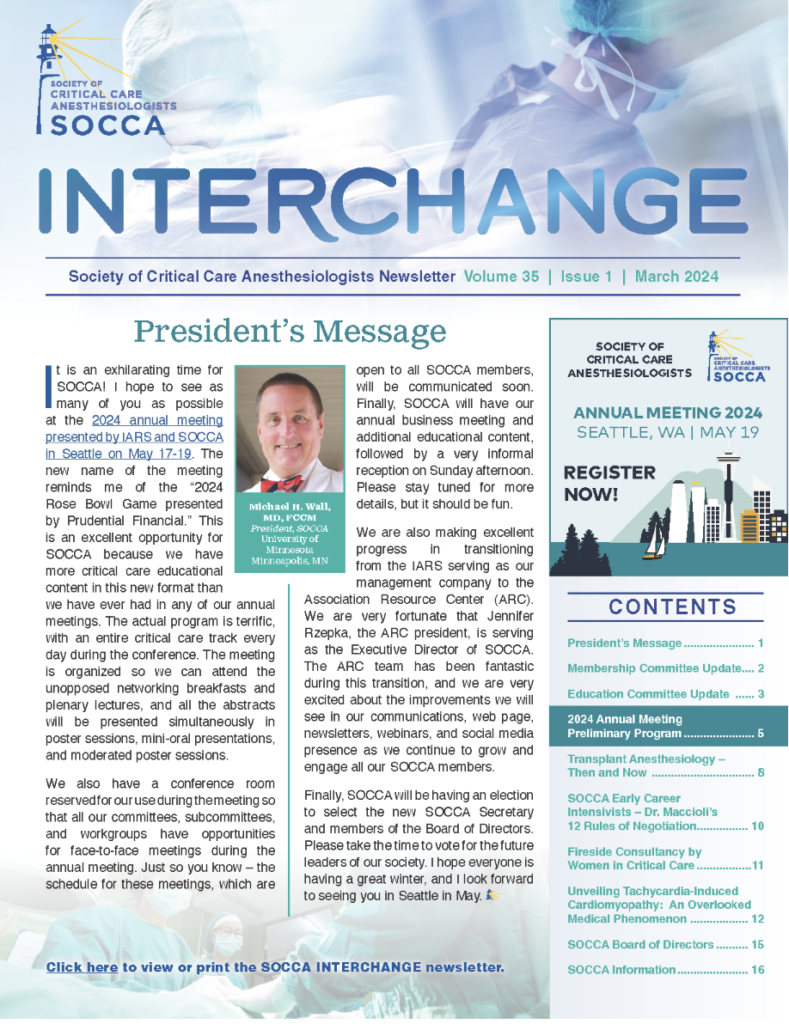Membership Committee Update
At the recent SOCCA Board meeting prior to the annual Anesthesiology conference, we continued to explore means by which to grow and sustain the organization’s membership. Understanding our membership patterns, and the challenges our members face, is key. One critical issue that we have identified is member loss during transition periods: namely residency to fellowship and fellowship to faculty. We are looking at ways we can leverage technology to help resolve this issue. We are excited to announce that, as of 2019, SOCCA will now provide free membership for residents who enter the San Francisco Match through their first year in practice. SOCCA is also extending the same offer to the 2019-2020 fellowship class. More broadly, providing value to members remains a central tenet of the organization. To that end, the Membership Committee would like to highlight how SOCCA helped one fellowship training program further the development of both their trainees and junior faculty.
The Role of SOCCA Membership in Trainee and Faculty Development

Piyush Mathur MD, FCCM
Anesthesiology Institute, Cleveland Clinic

Eunie Yook, MD
Anesthesiology Institute, Cleveland Clinic
Cleveland, Ohio
The professional development of both faculty and trainees is an essential aspect of any anesthesiology critical care training program, as outlined by the Accreditation Council for Graduate Medical Education (ACGME) both in the milestones project and program requirements. Since 2015, we have leveraged SOCCA as a key component of our professional development platform for the fellowship. We began by ensuring that fellows become SOCCA members, and they were encouraged to present scholarly activity at the annual meeting. This led to a consistent 80-90% participation rate amongst the fellows (totaling 10) in the subsequent years. Trainees found the meeting’s educational content and networking opportunities to be valuable as well. We simultaneously encouraged faculty to participate and mentor the fellows, which likewise led to increased SOCCA membership amongst our faculty and increased faculty participation at the meeting. We were also encouraged by the SOCCA leadership, including the President, who spent time with our faculty and fellows, acknowledging their participation and sharing the society’s vision.
Holding an alumni social event was helpful in keeping continued mentorship and active engagement for our program. These gains have been sustained over many years and have had the additional benefit of attracting very talented residents to our fellowship program, such as our current fellow, Dr. Eunie Yook. When asked about the benefits of SOCCA participation, she shared the following:
“SOCCA 2018 was my first poster presentation at a conference. With a mentor’s help, I was able to walk through each step of preparation with excitement. The conference also offered an opportunity to meet and network in more relaxed environment. Through the interaction with people from various backgrounds, I was able to compare different aspects of practice between academic and private settings. Attending helped me to expand my academic knowledge and build a professional network.”




































